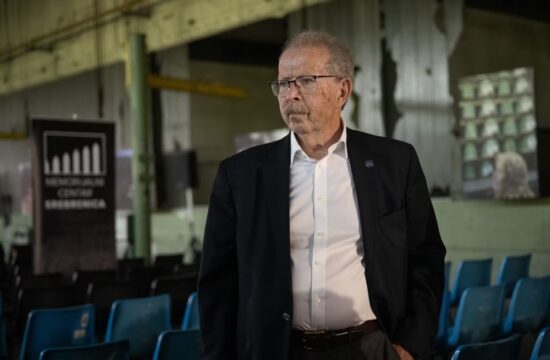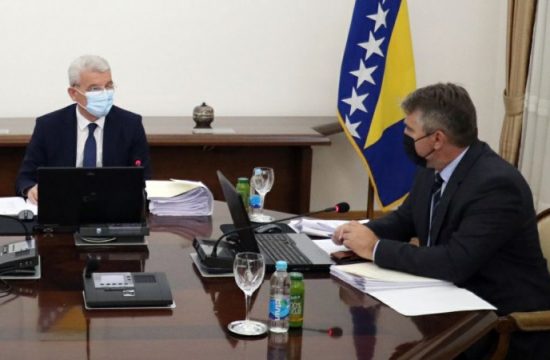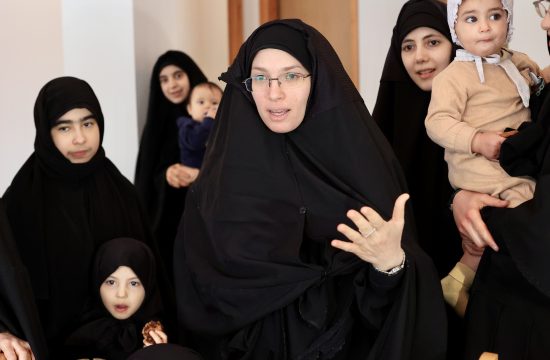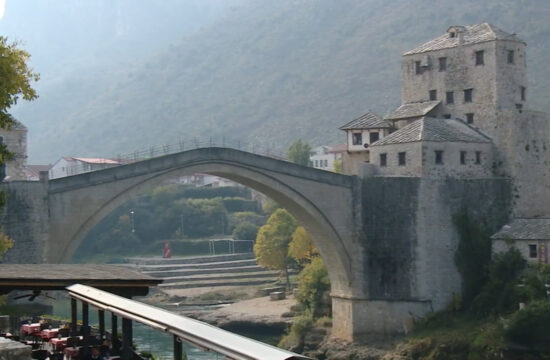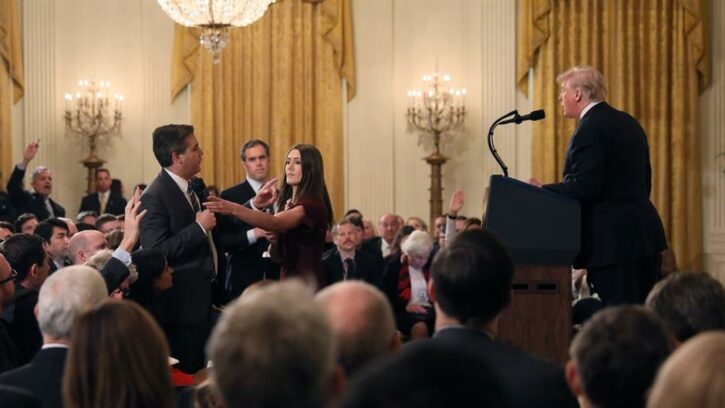
In a stunning break with protocol, the White House said on Wednesday night that it's suspending the press pass of CNN's Jim Acosta "until further notice."
The move came just hours after Acosta, CNN's chief White House correspondent, drew the ire of President Donald Trump and his allies by asking multiple questions at a post-midterms news conference. Trump insulted Acosta and called him a “terrible” person.
White House Press Secretary Sarah Sanders announced in a statement that Acosta would be stripped of what's known as a “hard pass,” which gives him access to the White House grounds.
CNN said in a statement that Acosta has the network's full support.
The revocation of his pass “was done in retaliation for his challenging questions at today's press conference,” the statement said. “In an explanation, Press Secretary Sarah Sanders lied. She provided fraudulent accusations and cited an incident that never happened. This unprecedented decision is a threat to our democracy and the country deserves better. Jim Acosta has our full support.”
In the 7 p.m. hour on Wednesday, Acosta was stopped at the White House's Pennsylvania Avenue gate where reporters usually enter. He was heading back to the White House for a live shot on CNN's “Anderson Cooper 360.”
Reporters who regularly cover the White House are routinely granted “hard passes” to ease entry and exit to the grounds. It is unclear whether Acosta will be granted some other sort of entry pass for his work. But on Wednesday night, he was turned away at the gate.
The removal of his pass is a sharp escalation of tensions between the Trump administration and CNN. It immediately stirred concerns within the White House press corps.
Peter Baker, the chief White House correspondent for The New York Times, said on Twitter: “This is something I've never seen since I started covering the White House in 1996. Other presidents did not fear tough questioning.”
The White House Correspondents’ Association (WHCA), which advocates for the press corps, issued a statement soon after Acosta was denied entry, calling the revocation of his access “unacceptable.”
“Journalists may use a range of approaches to carry out their jobs and the WHCA does not police the tone or frequency of the questions its members ask of powerful senior government officials, including the President,” the association said.
“Such interactions, however uncomfortable they may appear to be, help define the strength of our national institutions. We urge the White House to immediately reverse this weak and misguided action.”
Elisabeth Bumiller, the Washington bureau chief for The New York Times, said that “the president should not pick and choose who covers him, and he should certainly not force out a representative of one of the country's leading news organizations, one that tens of millions of Americans depend on for their news.”
Acosta has been one of the most aggressive reporters on the Trump beat, winning him huge numbers of fans but also huge numbers of critics.
During Wednesday's news conference, many people on social media thanked Acosta for trying to hold the president accountable for his words and deeds.
But others condemned the correspondent. Some Trump boosters said Acosta's credentials should be revoked. And pro-Trump media outlets ran stories alleging that the reporter had mistreated the White House aide who tried to take a microphone away from him at the news conference.
Sanders repeated this assertion in her statement.
“President Trump believes in a free press and expects and welcomes tough questions of him and his Administration,” she said. “We will, however, never tolerate a reporter placing his hands on a young woman just trying to do her job as a White House intern. This conduct is absolutely unacceptable.”
CNN producer Allie Malloy responded to Sanders via Twitter: “This is a complete lie. The woman grabbed Jim's arm repeatedly. He never once touched her. In fact at one point Acosta tells her politely ‘pardon me, mam’ as she's yanking on his arm.”
Acosta also tweeted that Sanders’ description of the incident was a “lie.”
At the news conference, Trump snapped at the press corps, called reporters “rude” for asking questions, and made baseless claims about political polling.
“Such a hostile media. It's so sad,” he said, keeping up his years-long campaign against the people who cover him.
Trump's most contentious exchange was with Acosta. Immediately afterward, CNN said in a statement: “This President's ongoing attacks on the press have gone too far. They are not only dangerous, they are disturbingly un-American.”
“While President Trump has made it clear he does not respect a free press, he has a sworn obligation to protect it,” CNN added. “A free press is vital to democracy, and we stand behind Jim Acosta and his fellow journalists everywhere.”
The news conference was shown live on CNN and all the other cable news channels and broadcast networks. Media critics and Democrats said Trump's combative streak — telling reporters to “sit down” and insulting some of them — might be part of a strategy to deflect attention from Democratic victories in the midterms.
The press conference lasted 1 hour and 26 minutes. Trump's treatment of the press varied from one minute to the next. As at prior news conferences, he showed contempt for reporters one minute, complaining about questioners “jumping out of their seats screaming questions at me,” then suggested he was enjoying the back and forth.
“Should we keep this going for a little while?” he asked, one hour into the session, prompting some of the reporters to say “yes!”
When a reporter from a Japanese news outlet asked a question, Trump said, “Say hello to Shinzo,” referring to Japanese Prime Minister Shinzo Abe.
The news conference threw into stark relief the different styles of different White House correspondents. Some, like April Ryan, tried to ask questions without being explicitly called on.
“Sit down please,” Trump said to her. “Sit down. I didn't call you, I didn't call you, I didn't call you.”
Ryan was trying to ask about voter suppression concerns. In response, Trump falsely said that CNN's polls were a form of suppression.
Trump frequently condemns so-called “suppression polls,” alluding to a conspiracy theory that claims news outlets distort polling results to discourage people from voting. He brought up the idea again later in the news conference, despite a lack of evidence for the idea.
Toward the end of the event, Yamiche Alcindor, a correspondent for PBS “NewsHour,” asked Trump about the widely shared view that his rhetoric has emboldened white nationalists.
“That's a racist question,” Trump said repeatedly in response.
Social media lit up with outrage about Trump's dismissiveness. Alcindor, who is black, moved on.
She tweeted later: “I followed up the president calling my question “racist” with a policy question about his proposed middle class tax cut because that's what journalists do. We press on. We focus on the privilege of asking questions for a living. We do the work.”
Follow N1 via mobile apps for Android | iPhone/iPad | Windows| and social media on Twitter | Facebook.

